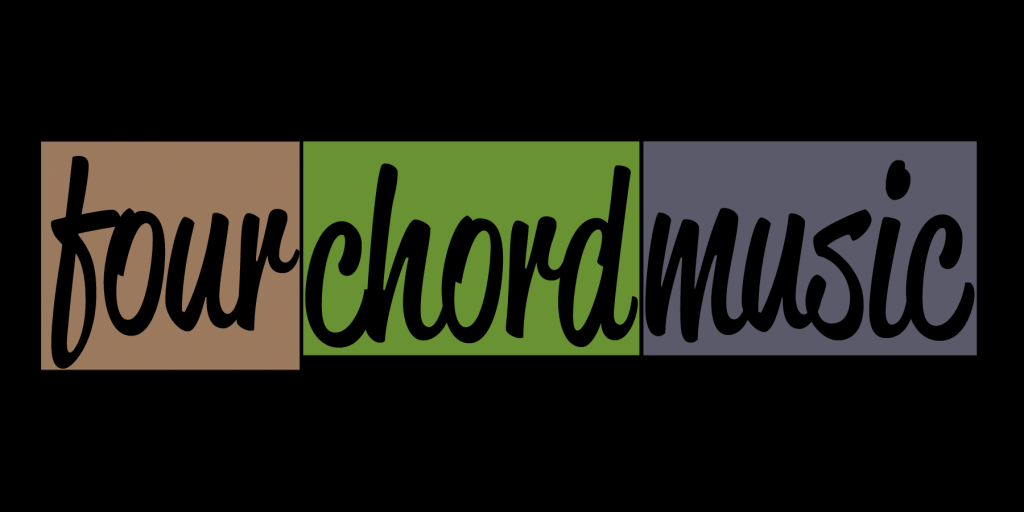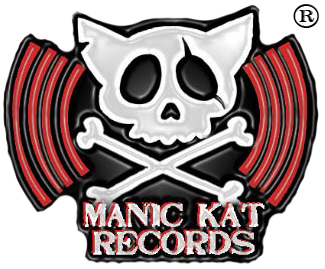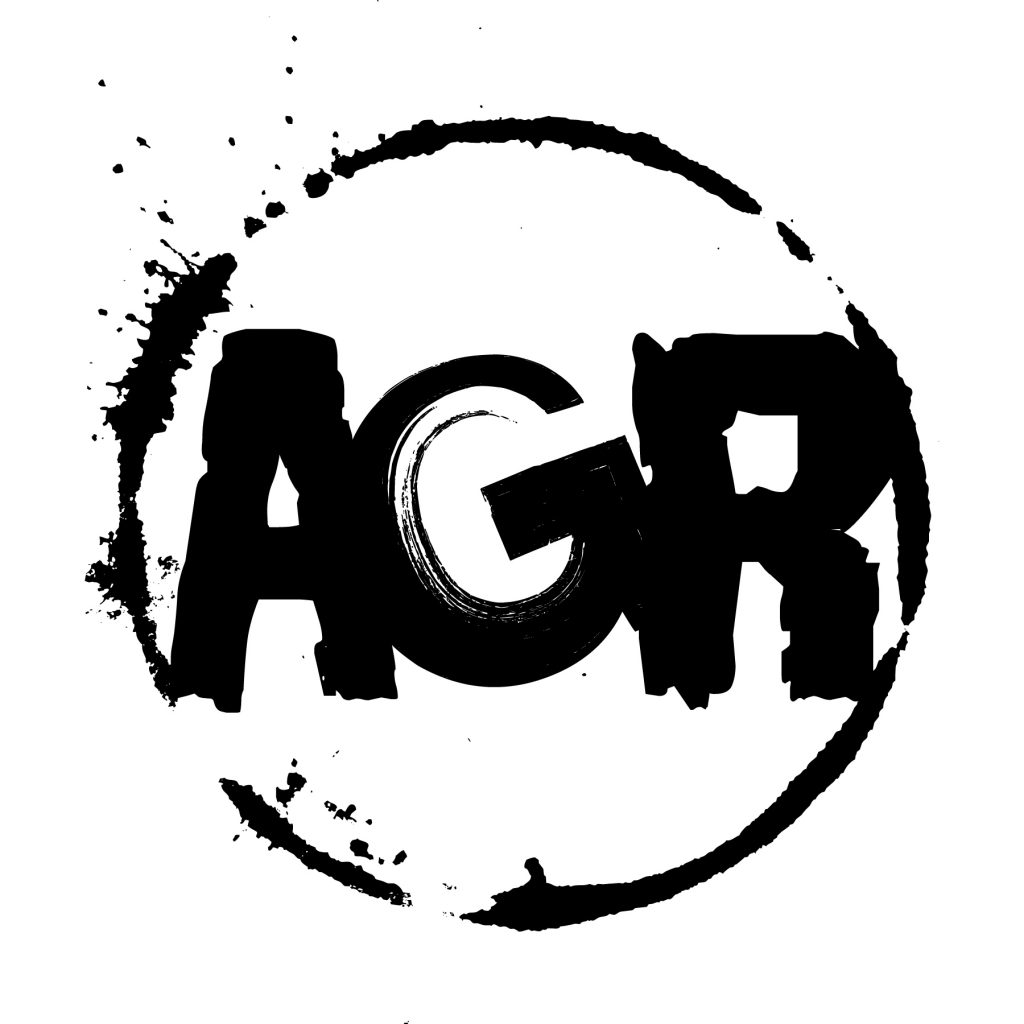For decades, artists have dreamed of success. Traveling the globe, playing shows to thousands of screaming fans, and living the life. Traditionally, this required being signed to a record label.
While it’s no longer the case that a band needs to be signed to be successful, and labels are providing less and less support, some bands still strive to get signed. There are many independent labels that do a lot for their artists, and provide a more personal touch than the majors.
Regarding the goal of signing to a label, Rishi Bahl of Four Chord Music says, “I think the traditional notion of a ‘label’ is completely obsolete.” He goes on, “[D]o not even think about a record label: put your head down and do good work. If you get caught up in 'getting signed' you start to fit the mold rather than create the mold.”
When even a record label is telling artists that they should focus on themselves, it’s a good indicator that bands in the punk, hardcore, and metal scenes need to work harder than ever.
Personally, I don’t think it’s a bad thing because that means these bands also have control.
I’ve compiled a list of my own tips to get signed, including some traits that labels look for in an artist. These are the things that I’ve seen in my personal experience that can really set an artist apart and make them most appealing to a label.
Additionally, Eric Walden from Awfully Good Records, Peter James of Manic Kat Records, and Rishi Bahl, owner of Four Chord Music agreed to pitch in with advice on what they personally seek in a potential signee.
Further, Aaron Gingras of Suburban Samurai lends his advice on staying organized in a band.
Full text from each of our guests can be found at the end of the article, with select quotes in the body of the article itself.
There, that’s enough of an introduction. Let’s get to it!
Skip to a section:
The Basics
The Details
Conclusion
Staying Organized - a Band's View
Interviews with Eric Walden, Peter James, and Rishi Bahl
Label Profile: Four Chord Music
Founded by Rishi Bahl in Pittsburgh, PA, Four Chord Music is a DIY record label aiming to share valuable music with the people who need it most. As a full service label, Four Chord Music strives to help artists and fans alike.
The Basics
Aside from the obvious, having good music, here are some basics that almost every label will look for. Read the interviews at the end of the article to find differing opinions!
- Hustle
Bands who work hard and put in 110%, hell, 150%, to everything they do will look much more appealing to a label. - Organization
An artist who has their stuff well put together and is super organized on the road and with their releases is a lot easier to keep on track than an artist who is clueless. - An engaged following
Artists without dedicated fans who keep up with every Tweet, Facebook post, etc. don’t have anyone on their “team” to spread the good word. These “evangelists” can really help spread an artist’s music to more and more people. - A developed brand
Have an aesthetic and stick to it – a band is a brand, and your marketing needs to reflect that. - A common goal shared by all members of the band
If only one or two of the band members want to take things further than local gigs, the label will likely not want to pursue a relationship with you. The band needs to be on the same page about the short and long term goals for the band, otherwise you’re out of luck.
The Details
The above may seem like a lot, but unfortunately this is just the tip of the iceberg. There are many other things a band can do to make themselves attractive to a label. You can even find entire books on the subject.
Let’s get a bit more in depth on what these mean and how you can improve in the areas mentioned.
Skip to section:
Hustle
Organization
An Engaged Following
A Developed Brand
A Common Goal
Hustle
Build a local fanbase. Yeah, touring is fun, but if you don’t have a solid following at home, it’s even harder to build a fanbase elsewhere.
Don’t oversaturate your home market with shows, but make sure that the fans in your home market each think they are your #1 fan and would do whatever they can to help you.
Once you have a solid local following, branch out to regional shows. Reach out to your local fans individually, thank every single one of them for coming to your shows, buying merch, and supporting you.
Then, ask if they might have any friends in the cities you’re going to be playing in who would enjoy your music. Ask them to share your music and event with those friends.
Continue the system as your band grows… But as you grow, it will take more and more time so you may have to cut back and only do that with your true fanatics, rather than just followers. But, don’t be afraid to build relationships with your followers to turn them into fanatics.
In regards to hustle, Rishi Bahl suggests, “Work smart, not hard . . . What I HATE to see bands do is record constantly before they play any shows and record themselves. You cannot grow the way bands need to grow doing this.”
Eventually, you’ll have to add some organization to your interaction with fans. Meet and greets, walking the line before your shows (if there is a line), etc. etc. but always keep it about the fans. No fans, no band. And don’t be one of those bs artists who charges an insane amount for meet and greets, that’s just lame.
A great example of a band that has had huge successes because of their fan-first attitude is The Maine.
The Maine are a band that have successfully manifested a fan-first attitude for over a decade. They still walk the line every morning on Warped Tour (RIP), even though they play the main stage.
They take the time to actually meet every single fan. And they don’t charge for meet and greets, whether they're on Warped or on their own tour.
Touring a lot once you have reached a comfortable level can certainly help, but strategically touring is much more important.
Don’t jump at every opportunity and spread yourself thin, instead take the best opportunities to reach the most people. The money aspect doesn’t matter at this point, expect to take a loss, but it’s an investment into your career. That being said, still be sure to keep track of your income and expenses!
You can also hustle digitally. By that, I mean interacting with your fans online. Not only as a band, but from your personal accounts too.
Do live streams, offer exclusive content for email subscribers, and post behind the scenes footage and photos. You can even set up a Patreon, if you have a dedicated enough fanbase.
One thing to be careful of, though, is how you hustle digitally (or in person).
Eric Walden from Awfully Good Records says, “emailing a label ‘Yo dawg check out my new track. It’s FIYA’ probably isn’t the best to start a partnership.” It’s true for labels, and it’s true for fans as well.
For example, comment spamming on Instagram or following and then unfollowing people trying to get your follower count higher is just dumb, and it isn’t a strategy that works long term. It’s not sustainable and you look like an idiot.
What it really comes down to is that labels want to see that you and your bandmates are willing to put in the time and effort needed to succeed in music.
Organization
I’m not saying you have to be a tour manager extraordinaire or social media marketing wiz, but having some basic accounting and organizational skills is a huge plus.
One way you can do this is by tracking your touring budget, check out my free e-book on tour budgeting to learn more on that. Also included in the e-book is a simple gear manifest sheet to keep track of gear on the road.
Non-tour expenses should be logged, as well as accurate inventory of all merchandise and equipment plus any additional band-owned assets.
Other things you should do include incorporating the band in some form – for most bands an LLC is the best option, the cost of which varies by state. This, in combination with a solid partnership agreement (hire an entertainment lawyer and take my advice with a grain of salt) will help protect your band in the future from both internal and external liability issues.
Peter James from Manic Kat Records says, “Being organized and having set goals makes you more appealing to the industry over other bands. While I understand that it’s about the music, it’s still called the music business. Having a good sense of understanding of the business portion of the industry will help you in the long run.”
Peter makes a great point that all bands should follow, in response I would say music might be your dream job; however it’s still your dream job.
For more extremely helpful information on staying organized on the road, please read Aaron Gingras’ section of this article. You’ll find tons of good information that will likely prove useful to you.
Label Profile: Manic Kat Records
With 14 artists on their roster, Manic Kat Records is the largest label featured in this post. Peter James heads up the label which focuses on nurturing artists and encouraging them to grow, rather than making a quick buck on hit songs.
An Engaged Following
You can post on Facebook, Instagram, etc. all day every day, but if your followers aren’t interacting with your content you won’t get anywhere.
There are so many active pages these days, you have to fight for your followers’ attention. Having a solid social media plan that focuses on your brand (the next section) is key.
Provide quality, engaging content, that encourages followers to interact, whether it’s a like, comment, or share. You shouldn’t have to ask for the interaction; it should be something that people want to interact with on their own accord.
On the topic of having an engaged following, Peter James offers this: “This (engagement) creates a personal connection with the band so instead of it being a random like, this now turns into an engaged fan. This engaged fan is now way more likely to share and tell their friends about this new band that they heard of because they are ‘cool to talk to’ and now consider them as friends.” Rishi Bahl makes a similar statement, adding “You need to know their names, and engage with them in a meaningful way.”
Eric Walden seems to hold a similar viewpoint, stating his top five indicators for a potential signee are, “Communication, Communication, Communication, Communication, and last but not least; communication. The way artists talk to band members, fans, opportunity creators and their network plays a huge role in their success. That goes double for all social media posts.”
Good examples of what you can post when you aren’t on the road or making announcements include:
- Live shots from your archive
- Well put together videos
- Links to reviews/interviews of your band
- Live Q&As with the band once in a while
A Developed Brand
Gone are the days of wearing cargo shorts on stage and people not caring. Your band is a brand, and you need an aesthetic. Everything should be uniform, from your stage presence and merchandise all the way down to your social media presence.
A cohesive image will subconsciously tell fans that you mean business. Though it might not seem like much, it really matters. Having a unified image will not only help push your social media traffic, but it will help to convey the message of your music if you execute it correctly.
This will also help down the road, if your band makes it to the point of having a team, you can show the person running your social media what your brand is. They can then keep things running as is, with a few minor adjustments, rather than having to completely rebrand your image.
A Common Goal
This should be common sense: the members of the band need to agree on where the band is going. If you want to tour the world and make a living off of music while your drummer, Bob, just wants to play the local youth center every two weeks for the rest of his life, you’re not going anywhere.
Things to discuss with band members or potential band members include:
- Willingness to travel (tour) – how long, how often, and how far
- Schedule of practices – at least twice a week is recommended
- How the non-music workload will be split up – organization/business, driving, etc. Which duties are under each member’s responsibility?
- Investment – both financial and time-based are important to agree upon
Not discussing the above elements can, and likely will, lead to disputes in your band and a high rate of turnover in your members. Talk things out, make a solid plan, and stick to it!
Conclusion
I hope this article is useful for you, I know following the advice can only help, not hurt, your career. If you have any questions, never hesitate to reach out. I’m here to help!
Please read on for even more information, with full interviews from from Eric, Peter, Rishi, and Aaron. You can find their full responses below. I’m also providing all the links to their sites again so you can easily find them.
Label Profile: Awfully Good Records
Eric Walden runs Awfully Good Records, a label focusing on pop punk and metalcore. Their aim is to get recognition for the artists in the scene who deserve it, and they only go for bands who are awfully good.
Staying Organized - a Band's View
Guest Author – Aaron Gingras of Suburban Samurai
Aaron has spent the last three years touring relentlessly with his band Suburban Samurai. He's the drummer and manager of the band, using his professional touring experience with almost a decade on the road under his belt.
I gave Aaron quite a bit of freedom with what I asked of him, and it definitely paid off. This whole section, in fact, was written by Aaron based on one simple prompt: If you could write a quick quote about the most important things to you when keeping SubSam running like a well oiled, organized machine, that would be rad! You can read his response of his experiences and what he does to keep things flowing below:
There are too many! My background is an interesting one. I currently manage and play in a small touring melodic punk rock band from Burlington VT called Suburban Samurai. I have also spent the better part of the last seven years as production coordinator/office manager with an artist whose touring schedule allowed me to put my work to use on four continents.
It all depends on what type of band you are (assuming you are a band here - because lots of comedians and other acts tour as well) if you play out on tour or if you're a recording act traveling to and from private gigs or the studio, or something else entirely. If you do tour, is it DIY? Have you done it all yourself, found the bands and venues and have been wearing the promoter hat yourself? Have you connected with local promoters but are sticking to the DIY ethos? Have you built a team around yourself and are you starting to delegate certain tasks to your partners, management, or agent? It all depends. That being said, here are a few things that I tend to make sure I keep an eye on while touring with my own band.
First off, we have not found the right team to invite in or to build around ourselves yet. That being said, we'd always be excited to speak to someone who may be interested in helping out, it's a lot of work - ha!
I book all shows for tour, and 90% of the time that's me finding each local band and finding and securing the venue. Essentially, I wear the promoter hat for many of these shows - because that's the way we have been able to tour the way we have, at 35-55 shows a year for the last 3 years and increasing. In some of these markets we've finally been able to hand some of this work off to local/regional promoter figures, but at the end of the day, we are a small touring band from Vermont and I completely accept that we live in a reality where we will still need to prove ourselves at each step - and - we're happy to do that, because this is what we love to do. I believe that this is one way that a band can still stand out. It's important to remember to 'work smart' - but please don't be afraid of 'hard work'. If you are, you're in the wrong place - and/but/though - nothing replaces 'HONEST work'.
In addition to booking these shows, I also manage finances and settlements, ship merch and keep track of inventory, tm/pm, social media, drive, all in addition to being a musician. I'm sure anyone in a band knows what I'm talking about.
In the perfect world, you will have yourself as tight as can be. Having double checked show information, mileages/routing, budget, merch and gear inventory, transportation, accommodations, food/catering (if applicable), border crossing/VISA items (if applicable).
Understanding I've cast a wide-net, some of the easier things that ANY traveling act should be aware of are:
- Status of your transportation. If you've got a car/van/trailer, are you tuned up?
- Have you brought your rig in for a once-over a month before tour?
- Oil changed?
- Have you fixed your wiper blades?
- Will your registration or inspection run out while you're on the road?
- If so, do you have a plan for that?
The most important thing you can do here would be to minimize risk to your safety. Touring is messed up and things happen - so best you take every precaution you can to make sure you and the people around you are safe, followed by your gear and transportation and other items you've got out there with you.
- Health and quality of life. This is a big one. Getting a full night sleep and eating right will go much farther than you think. Everything else will become easier if you are rested and not hungry and cranky. Sometimes we can't get as much sleep as we want, but we've got to find a way to deal and meet ourselves somewhere in the middle!
- Theft and insurance. Please minimize the risk of theft. This is probably the EASIEST thing that a DIY band can do:
- Buy a secure lock for your trailer.
- Have a current inventory of all gear and merch you've got with you.
- BE ORGANIZED.
- Make sure you've locked your trailer to the van.
- Make sure your windows work.
- Make sure the locks on your vehicle work.
- Don't leave the money bag in the dash.
- Park where you feel safe and secure.
- Heck, buy Bluetooth trackers and plant them on your gear and your vehicle.
- BUY insurance!
Chances are, without what you've got you probably don't have a full duplicate rig sitting at home. Even if you do, having something stolen will take its toll emotionally and chances are it probably won't make sense to drive all the way home to get it and then drive all the way back out to the next show (I'd also assume for most folks that shipping your gear would not be an option). Renting gear is expensive, and nobody wants to be the 'I swear I'm a drummer, but can I borrow all of your stuff please' guy. I'm sure folks will understand, but that'll get old night after night. Extra work is absolutely extra work, but it's better to take a precaution than to try to not worry about it while crossing your fingers!
- There is no such thing as 'ah, it'll be fine'. This one is self explanatory. If it's not, you were probably the one who gave the responsible one in your band that heart attack.
- Be as prepared for your tour before you depart, as you are excited to be on tour when you're out there. Also self explanatory. Make sure your notes are in order. Check off all the things above and anything else that you feel may make sense to do.
Even though you put in a ton of hours on the road, this is all still 85% prep, 15% execute. Are you organized in a way so that you pay taxes on ticket and merch sales? With where you are as a band, does it or does it not make sense to? Record and take note of everything. Make those spreadsheets before you leave whether its for routing, accomodations (a hotel or a friends floor, doesn't matter), budget, sales, everything. Keep receipts!
I am very confused when people tell me they're impressed that I know exactly what number show we're on (at this writing, this band is about to play show #126) and/or when I'm able to say how we did on any given tour. My thought is that those are things that should excite you and shouldn't really be all that impressive to have a handle on - in fact, if I'm working with you and you don't have a handle on how well you do in each market and how well you anticipate you'll do in the next one, I'd be pretty nervous. These are the things that can let you know how well or quickly you're growing and where you can work to improve!
- General activity - Most of these thoughts revolve around being on the road or preparing to be on the road. Most of them can still be applied when at home, in some shape or form. If you want to hit it hard and go for gold, do it. There's no better way to do something than to just do it. You'll make mistakes, but the people you'll want to attract will be the same people who see you make those mistakes and learn from them and improve. Try to keep the content flowing - it doesn't matter whether that content is video or audio or whether it’s you just going out there and playing a bunch of shows. Whatever your thing is, keep doing it and try to enjoy what you're doing!
Huge thanks to Aaron for his contribution! Due to this stellar piece, I’ve asked Aaron if he’d be interested in doing an interview down the road, which he agreed to, so keep an eye out for that in the coming months.

Band Profile: Suburban Samurai
Hailing from Vermont's queen-city of Burlington, Melodic-Punk-Rockers Suburban Samurai balance and deliver their signature and swift one-two punch of a set though a series of high tempo and heavy-upbeat tunes, featuring catchy vocals and a driven rhythm.
Interview with Eric Walden, Peter James, and Rishi Bahl
I’ve compiled the responses from all three label owners participating in this project into an easy to read combined interview. You’ll find their responses in alphabetical order by first name. There is a wealth of information here, so I hope you can soak it in!

Eric Walden
Eric began his music career as a writer for Soundcheck411.com and quickly realized there was lots of great local talent. To help those artists, Eric started Awfully Good Records.

Peter James
Peter launched Manic Kat Records in 2009 to release his own band's music. In 2014, the label regrouped and Peter took it in the direction of helping other bands with their careers.

Rishi Bahl
Rishi plays in the band Eternal Boy and founded Four Chord Music to contribute to artists' successes the country over.
PPS: Aside from their music, can you explain what has attracted you the most to one or two of the artists on your label?
Eric Walden:
Sure. I’m a numbers guy so any band that has concrete specifics of past sales, local draw, etc. shoots straight to the top of my list. Once we get a better understanding of where the band is currently we sift through the services that Awfully Good Records provides and create a custom agreement that focuses on where we might have the biggest impact. If the game plan peeks the bands’ interest we partner up and begin to set plans into motion.
Peter James:
When you take music out of the equation, I like to look at bands’ individual personalities. All the bands we sign are amazing, laid back, hard-working people that understand everything that goes into doing what we do. It’s important for us to really love our bands as people, in addition to the music since we put our all into every band that’s on our roster.
Rishi Bahl:
Well, I am in Eternal Boy (a band signed to Four Chord Music), so that was a big factor, lol. But A Summer High has a very high ceiling for their careers as they are young, write top 40 type rock songs, and also grind. There are a lot of variables to manage and I thought that I could help them in their early levels. It was a one album deal so our time is almost expired. I am looking at 3 other bands as we speak, all more punk.
PPS: I believe that, in no particular order, hustle, organization, an engaged following, developed brand, and a common goal amongst the band members are five of the most important things for a band to not only be successful, but also to be appealing to a label. Do you agree, or would you have a different top five? Again, leaving out the music.
EW:
The top five characteristics we look for first and foremost are as follows: Communication, Communication, Communication, Communication, and last but not least; communication. The way artists talk to band members, fans, opportunity creators and their network plays a huge role in their success. That goes double for all social media posts.
I’m a big fan of the quote “luck is where preparation meets opportunity.” If a band is interested in partnering with a label, preparation and communication key. For example, emailing a label “Yo dawg check out my new track. It’s FIYA” probably isn’t the best to start a partnership. And yes, we actually do receive emails like that occasionally.
PJ:
I completely agree [with the statement in the question - ed], however, I would also add in experience in touring, regionally and nationally. This is something that in today’s age of technology is sometimes overlooked. In our genre, touring is still the number one way to connect with fans on a personal level and gain their following for years to come. Social media is terrific, however, it’s not the end all be all, just means to an end. Social media adds to a band’s exposure. It should NEVER be a substitute for grass roots touring. If you’ve never toured yet as a band, best advice I can give is to get out on the road and tour extensively for at least a year or two before soliciting managers, agents, or labels.
RB:
I think the traditional notion of a "label" is completely obsolete. I think you are correct in your first assertion on the qualities a band has to have, but do not even think about a record label: put your head down and do good work. If you get caught up in ‘getting signed’ you start to fit the mold rather than create the mold.
PPS: What do each of your top five things to look for in a band mean to you? For example, a band may think they’re hustling 110% by playing a show every week in their hometown. I would disagree with and say that isn’t giving 110%. Essentially, I’m looking for what your top five mean to you as what exactly it entails might be different to you or me than it is to a band who is reading the article.
EW:
You’re right, hustle is very important but means different things to different people. I try to encourage everyone on the team and all the artists we work with to try and accomplish more today than yesterday.
Here’s something to think about as well. Budgeting for a tour is a very important part of a band’s early trajectory. It directly affects the opportunities they can peruse throughout the year. Sometimes kicking butt at your day job is just as important to the band as what you can accomplish on stage. That extra overtime could be the difference between accepting and declining a great opportunity.
When it comes to playing your hometown I completely understand your point but oversaturating the local scene is generally an important step that shouldn’t be skipped. What you get out of continuous local shows diminishes as the band grows but they are still a good way to start networking, improving performance and receiving bigger opportunities. It all depends on what stage a band is at in their journey.
PJ:
Let me first start off by giving you my top 5 since I neglected to do so in the last question!
Top five (in no particular order of importance):
- Personality and work ethic as a band.
- Having the right personality and great work ethic is extremely important when not just trying to work with us, but with anyone in this business. No one wants to work with a “rock star” or “diva” so please learn to check your ego at the door. Many bands think that signing to a label means that everything will now be done for them and that is simply not the case. The more that’s done for you means the more freedom as an artist you are giving up. We, as a label, work as a team to help the artist grow and develop in every aspect of their music and career. In doing so, the bigger they get, the bigger we get so at the end of the day, we grow together. - Social media presence and engagement.
- Having a great presence on social media is very important but if you’re not engaging with your fans, then what’s the point of “collecting” all these followers. This also leads me to my next point about social media, don’t buy followers, likes, or plays. We can all see through it, it doesn’t help you as a band and it is just a waste of money. If you’re going to spend money in social media, plan a social media campaign to create awareness of your band and brand. - Marketability.
– This is something that most bands don’t realize is important. Having a cohesive appearance or overall “look” as a band helps with marketability. Having the right look can really set you apart from other bands. This along with band name/logo can create an image that helps to brand the band and make it more memorable to potential fans. - Organization and clearly defined goals.
- Being organized and having set goals makes you more appealing to the industry over other bands. While I understand that it’s about the music, it’s still called the music business. Having a good sense of understanding of the business portion of the industry will help you in the long run. This will also make you more appealing to industry managers, agents, labels, etc. because you’ll have a better understanding of how deals work and what is expected from you and realistic expectations from them. - Touring.
- Touring is critical in our genre and in order to be appealing to industry insiders, you must have a toured on your own extensively and be willing to tour aggressively in the future.
RB:
1) Work smart, not hard: I think playing in your hometown every week isn't a good thing, however, if you just started out and are looking to gain a following then you need to play often, anywhere; basements, backyards, venues, anywhere. Thanks how you understand what kind of band you are. What I HATE to see bands do is record constantly before they play any shows and record themselves. You cannot grow the way bands need to grow doing this.
2) Engagement: you cannot look at your social media following as "fans," rather they need to be seen as friends. You need to know their names, and engage with them in a meaningful way.
3) Integration: all of you socials, website, stage show, etc. need to speak and feel the same brand image. You need to make sure that you understand what kind of brand you are and adapt accordingly
4) You Aren't A Rockstar: The traditional understanding of a rock star no longer exists since MTV stopped playing music videos in the manner they used to. Swallow your pride, don't be a dick, and realize that you need every one around you in order to succeed.
5) Good Songs: If you do not have good songs then you have no chance.
PPS: When it comes to a band having a developed brand across their social media pages and website, what do you feel is the most important thing aside from the obvious images, etc.?
EW:
Let me preface by acknowledging that Awfully Good Records’ social accounts are significantly underdeveloped. We prioritize the branding and outreach of the bands on our roster far above our own. The best example I see currently is Ghost Killer Entertainment. They are getting unparalleled engagement on multiple platforms and are aligning themselves with industry leaders by sponsoring tours and some upcoming projects.
It all comes down to preparation and attention to a media plan. There’s a lot of great content out there that nobody sees. It’s important to pick strategic partners and push specific pieces of content heavily. For example there were lots of people (both in and outside of AGR) pushing Filmspeed’s latest release “Hexadecimal.” Linking up with large publications and gaining help from an expanded team catapulted the amount of attention the band received from their single.
We’re still seeing benefits from that heavy push months later. The Catalyst publicity group is a great resource for developing a digital media strategy I highly recommend linking up with them months before releasing anything to nail down what would have the biggest impact.
PJ:
Plain and simple, ENGAGEMENT and INTERACTION. It’s terrific if a band is posting extensively about touring, shows, rehearsals, or sneak peeks to new music; but if they are not engaging or interacting with the people following their pages, the posts are useless. Successful bands are always responding to fan comments and likes. This creates a personal connection with the band so instead of it being a random like, this now turns into an engaged fan. This engaged fan is now way more likely to share and tell their friends about this new band that they heard of because they are "cool to talk to" and now consider them as friends. Personal connection can still be achieved through social media if it’s done properly. This can inevitably turn followers into fans and fans into super-fans.
RB:
All content has to be integrated in the same way so when a person goes to our socials, they look and feel the same as your website, which looks and feels the same as your album art (for example).
OVERALL: The best advice I ever had as a band: don't worry what other people think, write great songs, and make sure you can sell out your hometown venue. Still rings true today.
A huge thank you to Rishi Bahl, Peter James, Eric Walden, and Aaron Gingras for sharing their thoughts! If you have any thoughts, leave a comment below to join the discussion.






